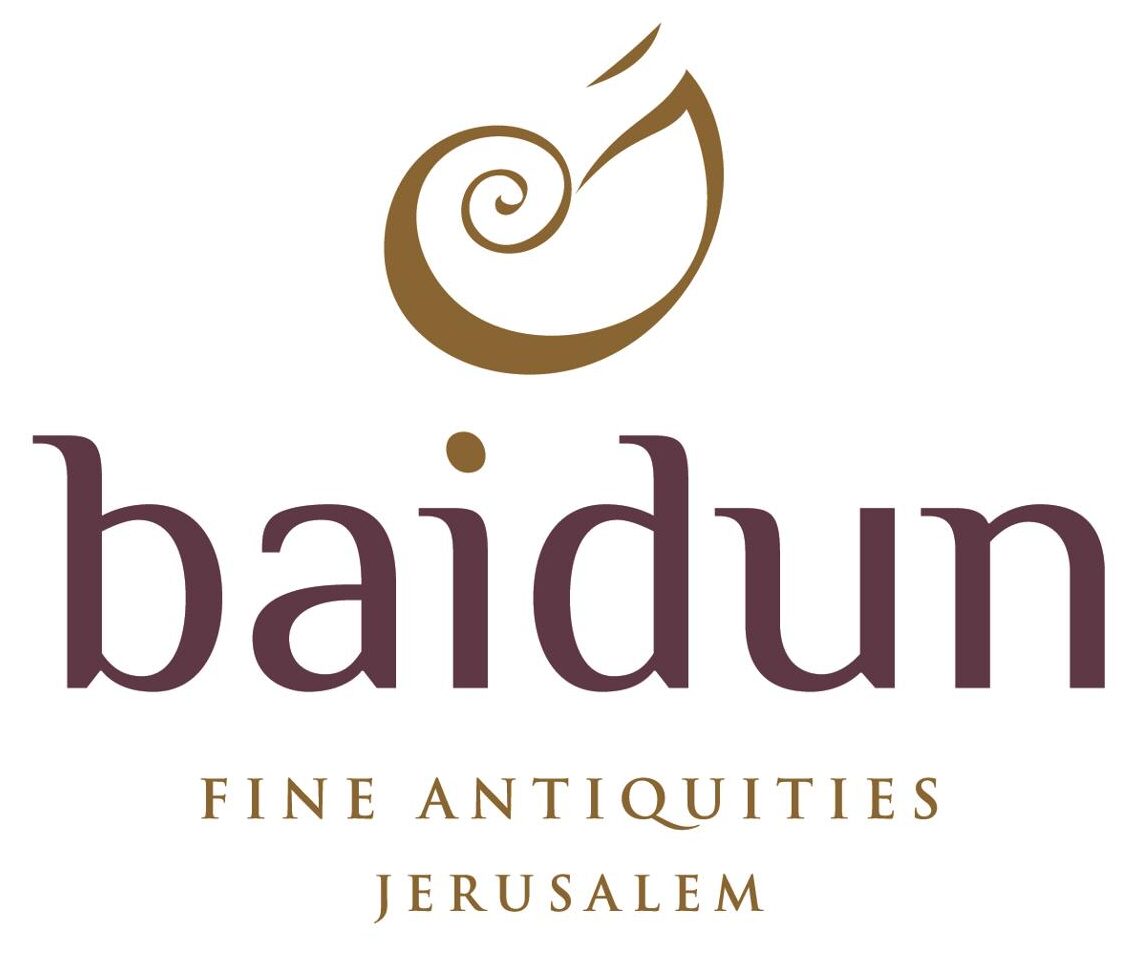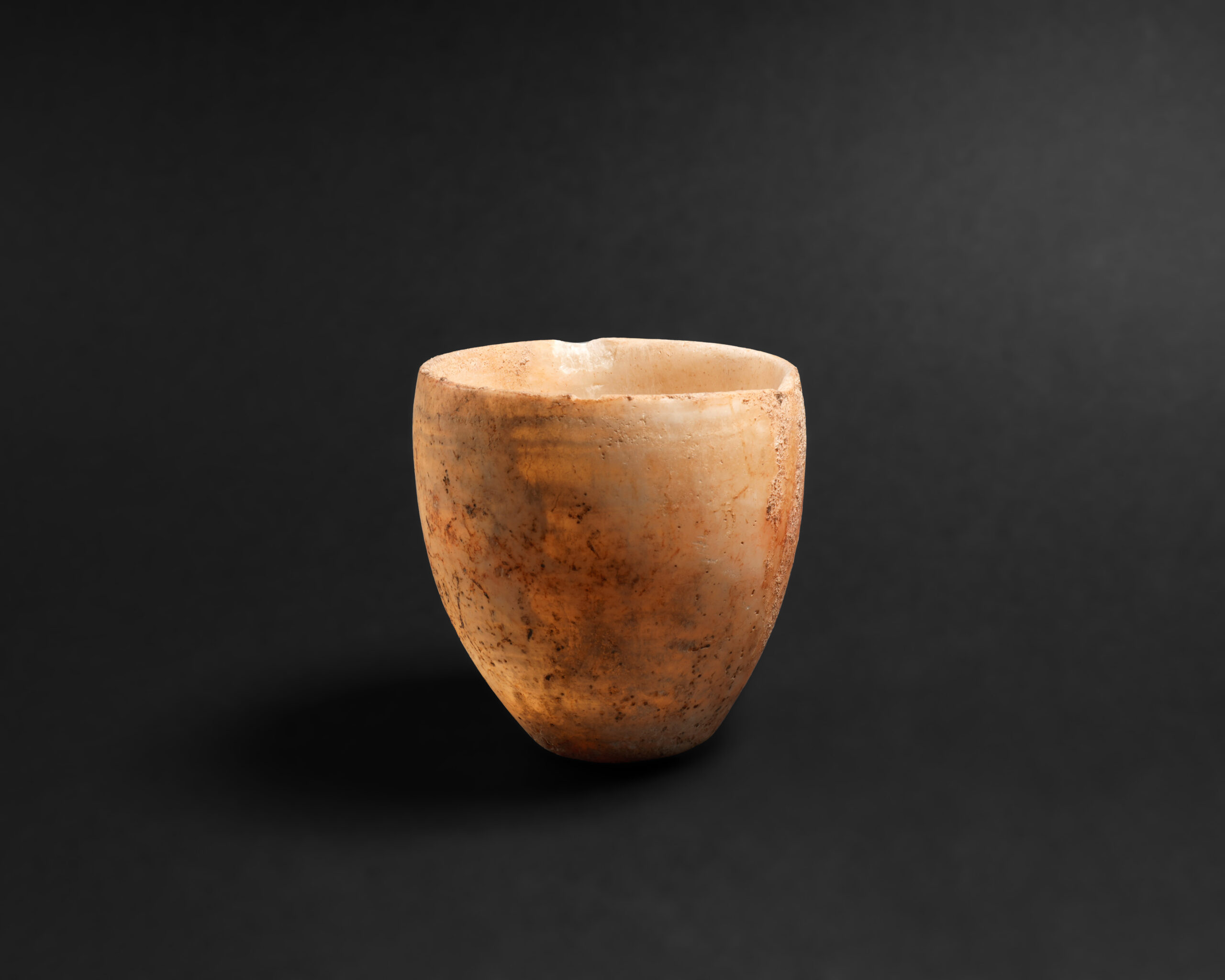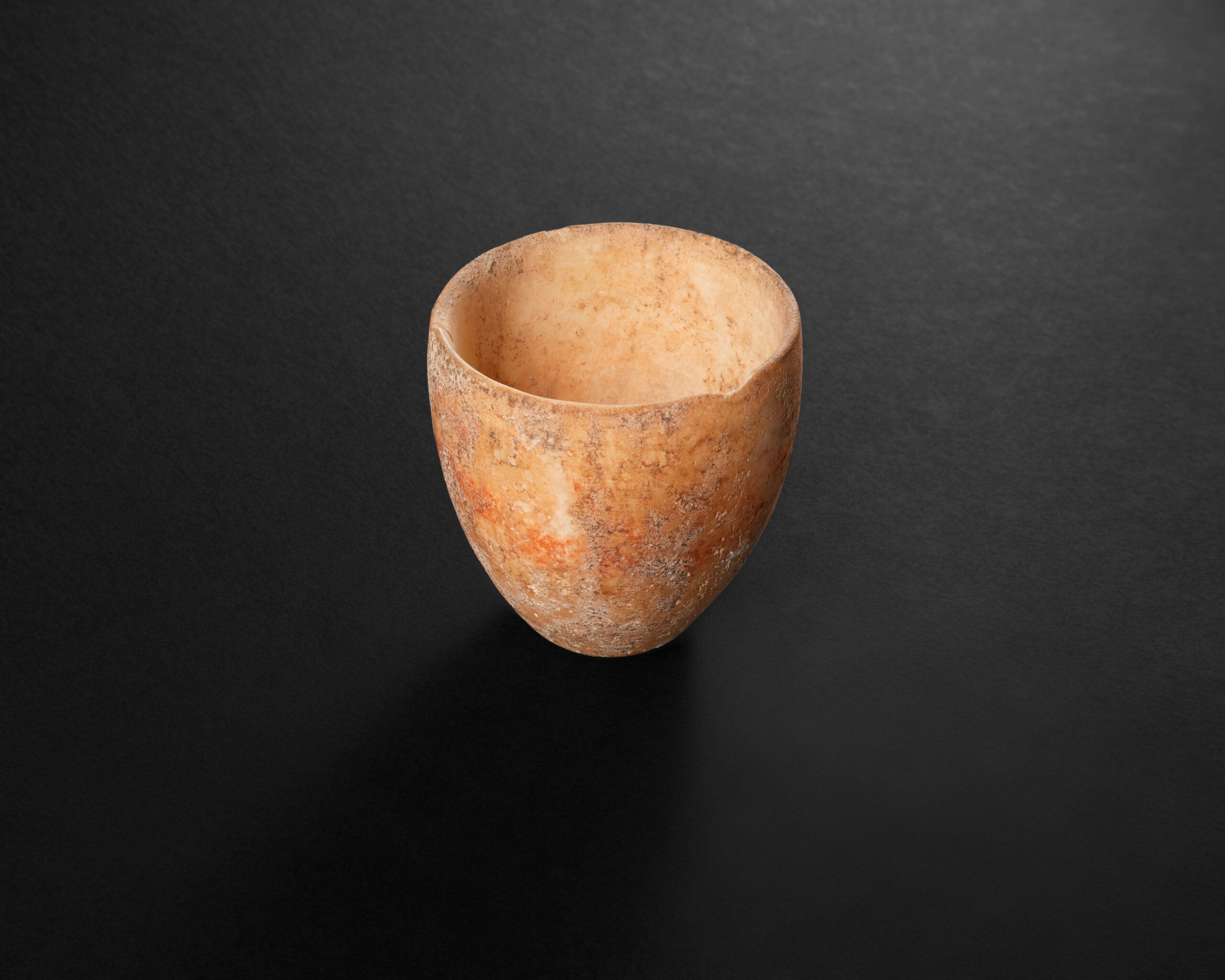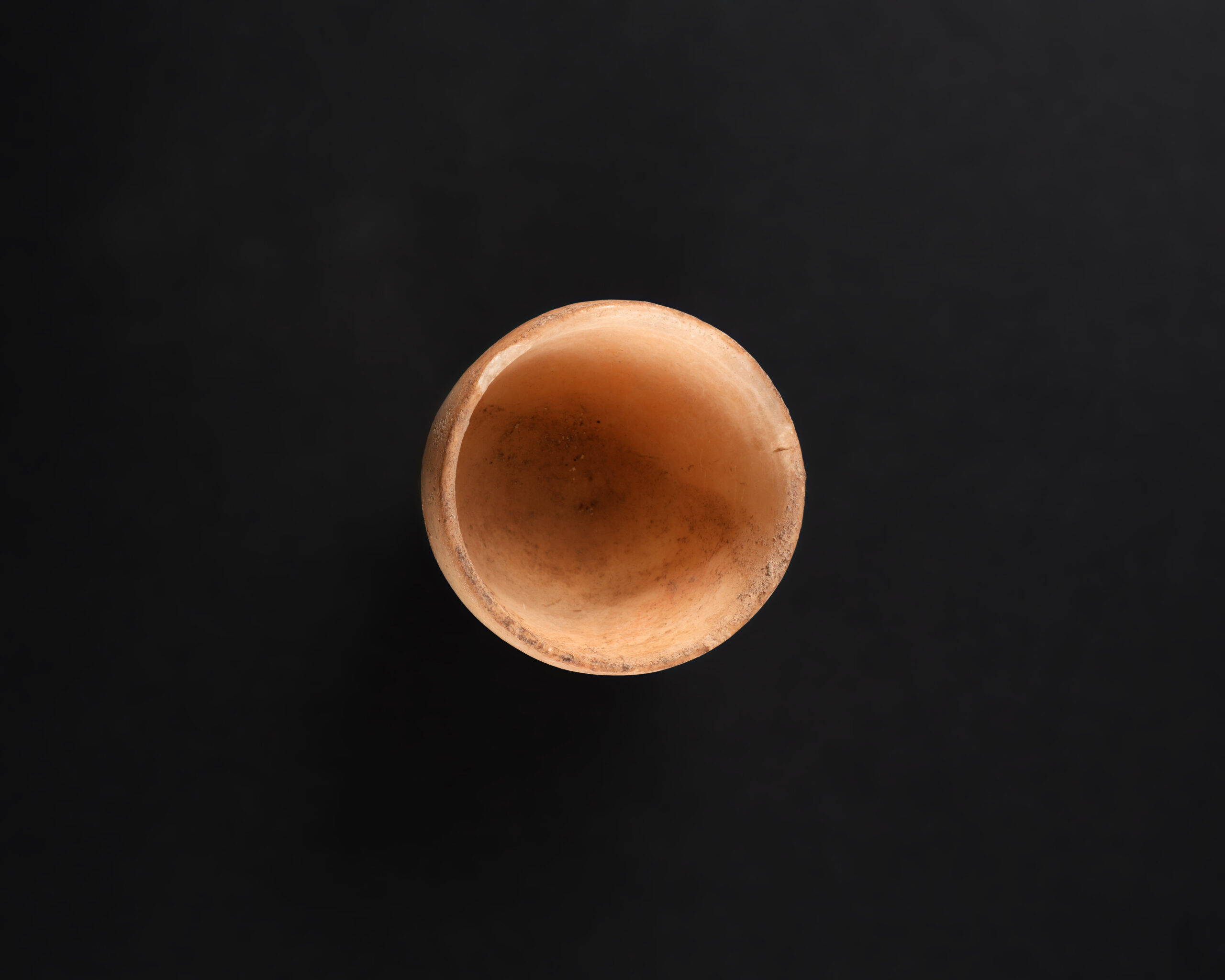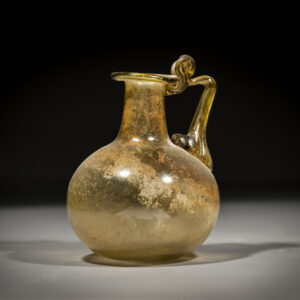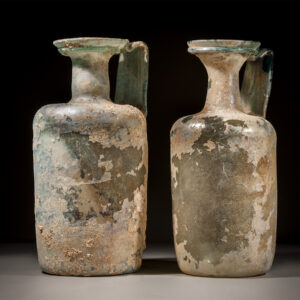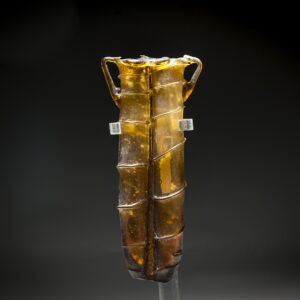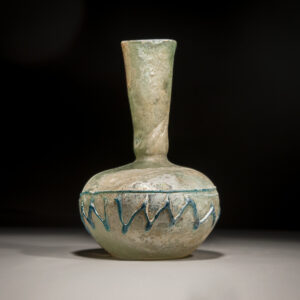Alabaster cup from the Israelite kingdom period, dating to the time of King David, circa 1200–800 BC. This vessel has been carefully fashioned from fine, translucent alabaster, which remains in perfect condition, emphasizing the skill of its ancient maker. The cup measures approximately 6 cm in height and features a simple, elegant form with a rounded bowl and a narrow, slightly flared lip.
The use of alabaster, a soft stone prized for its translucence and smooth finish, suggests the object was valued and possibly used in ceremonial contexts. Both the interior and exterior surfaces have been polished to a glossy, refined texture, with no visible signs of damage or deterioration. Its translucent quality would have enhanced its visual appeal when held in light, creating a delicate play of shadow and glow.
Discovered in the Judean hills, this cup is linked to the material culture of early Israelite society during the Iron Age. Its form and material imply it may have played a role in rituals or religious offerings typical of the period, serving both practical and symbolic functions within domestic or religious settings. Objects of this nature are rare, providing valuable insight into the craftsmanship and spiritual practices of the ancient Israelites during the era of King David.



